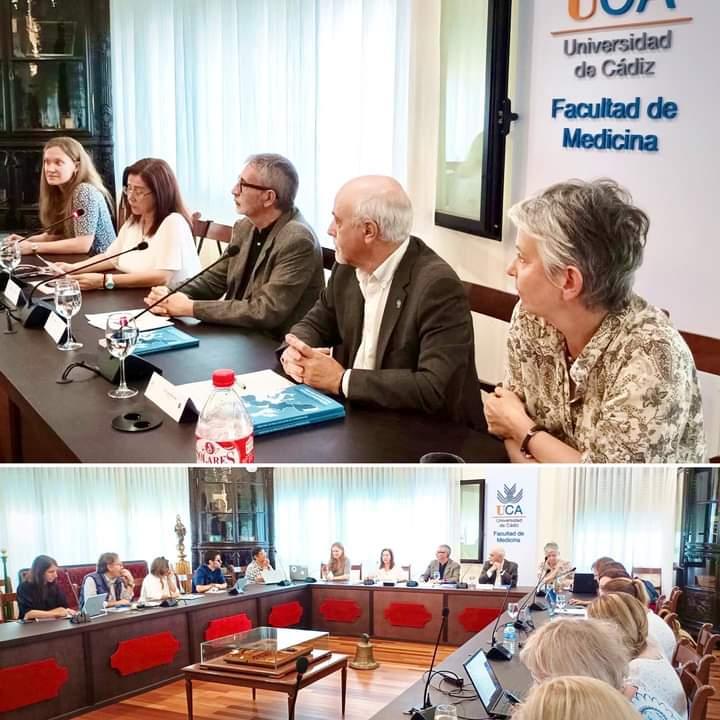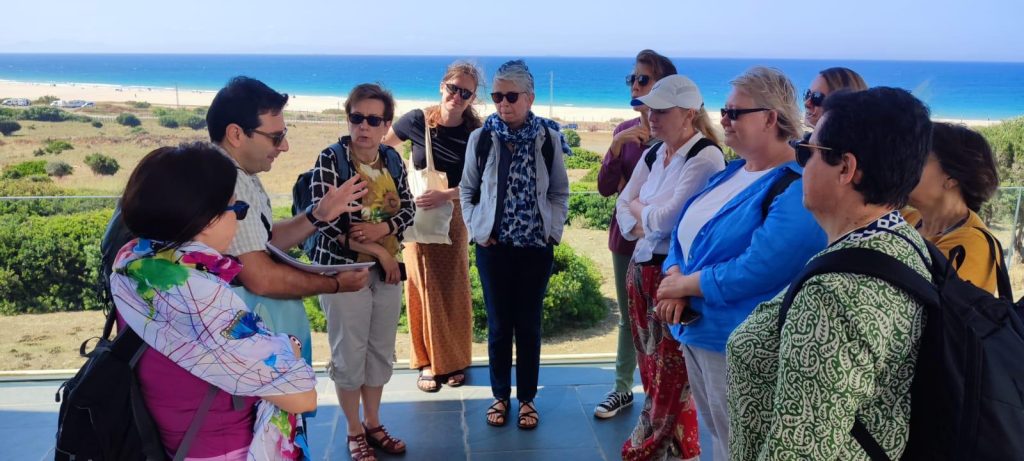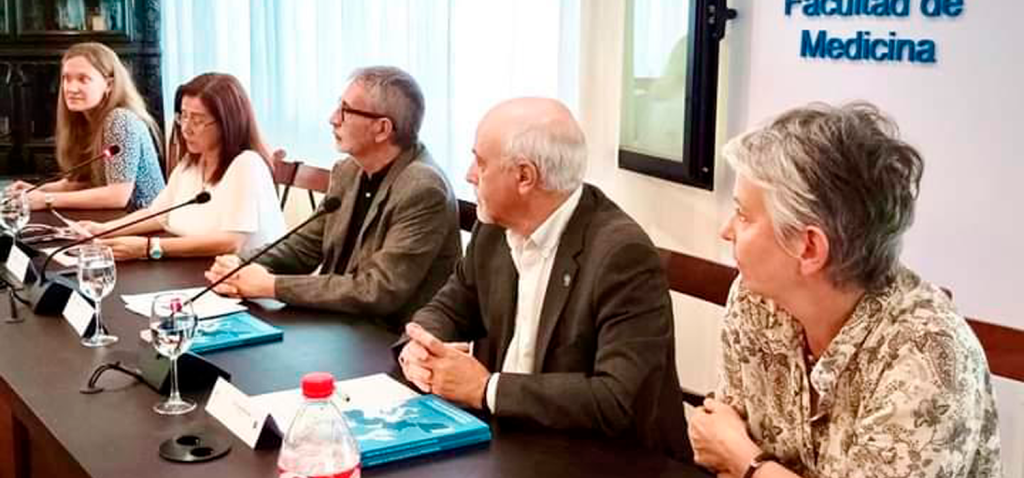The University of Cadiz hosted the final transnational meeting of the SEA-EU DOC project, which took place from 1st to 3rd of June 2023 at the Cadiz Campus. The event marked an important milestone in the development of this project that aims to expand employment opportunities for PhDs in marine and maritime sciences. SEA-EU DOC emerged as an Erasmus+ consortium in response to the growing deficit of permanent positions in the European academic sector and job insecurity. It seeks to give visibility to the diversity of career paths for PhDs, identify transferable skills acquired during the PhD, improve the quality of doctoral training to match different job opportunities and strengthen links between academia and the non-academic sector by creating a European network of marine science graduates, students and institutions.
During the meeting, leading researchers and representatives of the partner universities met in the Board Room of the Faculty of Medicine to discuss the results and assess the progress of the project. The meeting programme included working sessions, presentations and evaluation activities, as well as moments of exchange and networking among the participants.

The first day of the meeting, Thursday 1st of June, started with a welcoming session by the Rector of the UCA, Francisco Piniella Corbacho, followed by a round table discussion with the participants. Throughout the day, issues related to the preparation of the final report, both in financial and administrative terms, were discussed. In addition, presentations and evaluations of the results of the different lines of work of the project were carried out.
The second day, Friday 2nd of June, was focused on the presentation of final reflections and lessons learned from the training events. A workshop was also held to prepare the EUA-CDE 2023 annual meeting and discussed the maintenance of the SEA-EU DOC alumni network beyond the duration of the project.
On the last day of the meeting, Saturday 3rd of June, participants had the opportunity to enjoy a visit to the archaeological complex of Baelo Claudia and the beach of Bolonia. Baelo Claudia is an archaeological complex of great historical and cultural importance located on the coast of the province of Cadiz. This ancient Roman settlement was founded in the second century B.C. and became a thriving port city dedicated mainly to the production and trade of fish products and canned fish. Today, visitors can explore the ruins of Baelo Claudia, with its impressive amphitheatre, temples, baths, aqueducts and other well-preserved architectural structures. This visit allowed visitors to explore the rich history and culture of the region, and to enjoy the beach and the gastronomy of Cádiz.

The University of Cadiz is proud to be part of this project and to host the final transnational meeting. The SEA-EU DOC project has been an outstanding example of collaboration between the partner universities and has provided a platform for the exchange of ideas and joint development of research activities.
For more information on the SEA-EU DOC project, please visit the official project website at this link.


